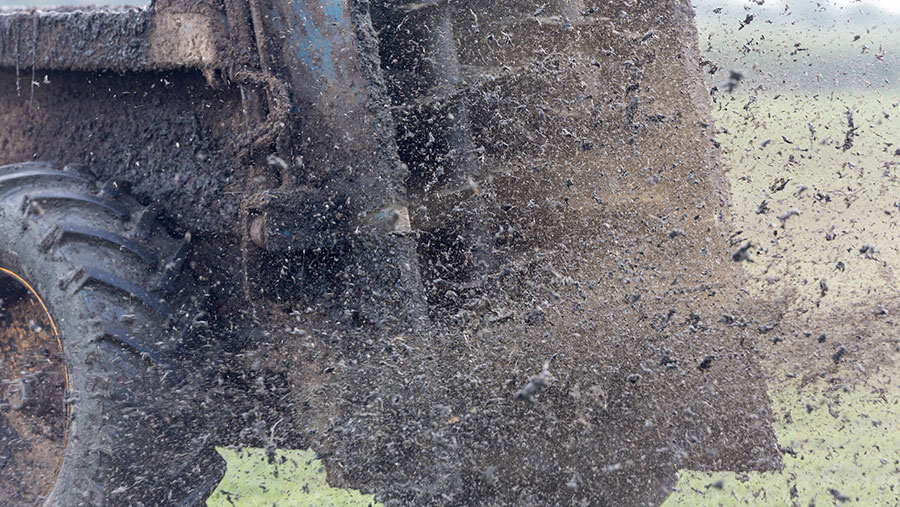Opinion: Farming Rules for Water present challenges for all
 © Tim Scrivener
© Tim Scrivener The management of 60m tonnes of organic material that has historically been spread on land each year has just become a lot more complicated – and expensive.
Since time immemorial, farmers have been spreading organic material onto autumn stubbles to fertilise the following season’s crop and improve soil structure. But in England, the new Farming Rules for Water means that is no longer legal.
About the author
 David Carr is the managing director at Whites Recycling – a national company specialising in liquid waste management in the food and agricultural industries.
David Carr is the managing director at Whites Recycling – a national company specialising in liquid waste management in the food and agricultural industries.
Introduced in 2018, the legislation seeks to reduce the diffuse pollution of rivers by improving agricultural practices, requiring applications of nutrients to match crop requirements.
In August, the Environment Agency, which is responsible for implementing the legislation, confirmed that nutrients could not be applied to grass after 1 September, or to winter or spring cereals in the autumn. This leaves few cropping options, such as oilseed rape, for farmers wishing to spread materials to land in the autumn.
Farmers, food and drink manufacturers and the water industry now face a considerable challenge. According to a report by the AHDB, 50m tonnes of farm manures, 1.9m tonnes of compost, 4.3m tonnes of commercial digestate and 3.5m tonnes of biosolids are applied in England every year.
See also: Industry reacts to new autumn muckspreading rules
In most of the country, six months’ storage is now required, which presents a significant logistical problem for both solid organic materials and liquids slurries, digestates and food waste.
The storage infrastructure is not there, and considerable investment over many years is needed to build additional facilities, given legal, planning and permitting hurdles.
My company, which specialise in managing liquid organic wastes from the food and drink industry, has had to rethink how to process this waste cost-effectively and compliantly. Solutions have included on-site treatment or pre-treatment, such as solids separation, to reduce the volume of materials that need to be disposed of.
For some customers, we have secured off-site treatment capacity at regional outlets in the water and anaerobic digestion industries. However, at least in the short-term, such treatment is more expensive and less reliable than spreading on the land.
For the livestock industry, the logistics and costs associated with both on- and off-site treatment are daunting. Some farmers will be looking to build the additional storage so that they can spread come spring. For others, on-farm anaerobic digestion may be an option, but is a considerable investment.
And some are hoping that the one-year exemption – Regulatory Position Statement 252 – which provided some flexibility this year, but with restrictive strings attached, will be renewed in 2022 – though the Environment Agency is clear that is not its intention.
So what comes next? There is no escaping the fact that we need to do more to protect the environment. And while some may debate the finer points of the new legislation, no one doubts that changes were required to limit potential diffuse pollution in our rivers, lakes and streams.
However, significant capital is needed to ensure effective, sustainable measures are in place – and, for some, this will take time. In the meantime, producers of organic liquid and solid wastes will need to work closely with their waste managers to remain compliant with the law.
Operators with problems should also reach out to their local Environment Agency officer. As the regulator, only they have the discretion and authority to help you in a transition phase.
A challenging period lies ahead, but the goal of cleaner, healthier water is one that we should all aspire to.
